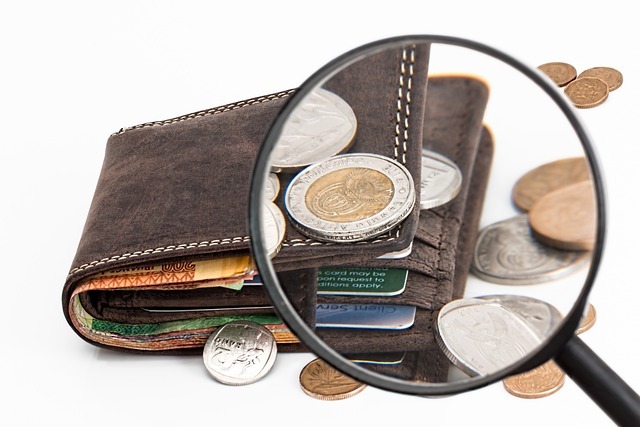Money money money…There’s no denying the importance of money and the stress it causes. In fact, one of the main reasons people feel worthless and have low self-esteem is due to money-related issues.
In these tough economic times, it’s more important than ever to gain control of your financial situation in order to gain control of your self-improvement.

1. Keep a financial spreadsheet – a financial spreadsheet is easy to make and is a perfect way to keep track of what’s going out and what’s coming in. Make sure you include everything from credit card purchases, memberships, insurance, groceries, cab rides, and shopping trips. If you are spending more than you make, then you have a problem and need to re-adjust your spending habits.
2. Sweat the small stuff – the small stuff adds up. Those daily expensive coffees, those weekly magazines, and those monthly gym memberships all need to be accounted for when you look at your finances. Every penny counts, do you really need them and do you use them?
3. Get help if you need it – there’s nothing wrong with asking for financial advice. In fact, this is one of the best ways to gain financial freedom and work towards financial and self-improvement. Find a financial advisor who can help you set goals and meet them.
4. Remain grounded – debt can be overwhelming. Really overwhelming. Furthermore, too much financial success can cause arrogance and rash financial planning. It’s important that whether you are in the red or profiting in the green, you keep your head about it. Make smart financial decisions regardless of where you are. Don’t let the wealth go to your head and don’t let the debt get you down. Debt is part of life you just need to take it one payment at a time.
5. ‘Sale’ does not mean ‘buy’ – just because something is on sale does not mean you need to buy it. You need to resist the bright lights of ‘half off’, ‘buy one get one free’, and ‘discounted item!’ is a big step to self-improvement.
6. Always Pay the Credit Card – try, with all your might, to get that credit card payment down. Credit card interest rate is one of the highest out there and it’s really easy to rack up a huge bill and forget about it. However, you will end up paying hundreds, if not thousands in interest, which can lead to more stress, more debt, and more insecurity about your financial success. Try to limit your credit card spending for emergency-only uses.
7. Discuss mortgage rates with your bank – your mortgage and interest rate are not set in stone. It’s a good idea to negotiate a better deal every once and a while. See what’s out there; talk to your bank manager; and make the most out of your options. Doing a little research can go a long way in the end.
8. Ditch the impulsive (and compulsive) buying – buy only what you need, not what you want. Impulse and compulsive buying can lead to buyer’s remorse (especially when the credit card bill arrives) which can negatively impact your self-esteem and self-worth. We all love a good shopping trip; but during these tough economical times, it’s important to rise above the urge to shop and prove that you can do it.
9. Do the research – better deals on insurance, electricity rates and phone plans do exist! You just need to do the research and see if you can bag a better bargain. Because of the intense competition in our economy, many companies are constantly lowering the prices of the services that you need. Take advantage of this by shopping around, comparing rates, and using a quote wizard online.
10. Use Savings Accounts wisely – they don’t call them ‘savings’ accounts for nothing! Set up savings and a spending account. What you do with your savings account is up to you- perhaps you are saving for a holiday; perhaps you are putting money towards the kid’s education. Watching your savings account grow month after month, regardless of if you are contributing $10 or $1000 is an important step in gaining financial freedom and improving your money issues.
11. Consolidate; if you have to – consolidating your debts is a really smart move, especially when debt is starting to consume your life and impact negatively your self-confidence. Debt consolidation can stop those annoying phone calls and overdue bills. Instead, you pay one payment each month for all your different debts combined. It is much easier to manage and you can rest easy knowing that you are getting out of the red.
12. Concentrate on what you have and want, not what others have– this can be a really hard thing to do, especially when your neighbor is flaunting his brand new swimming pool and your co-worker just received a $3000 bonus but you didn’t. Take a deep breath and push past those jealous and frustrated feelings. Concentrate on your own goals for the financial future and prove that you are better than those petty feelings of resentment.
13. Swap High Interest for No Interest – one of the great things about the competition of credit cards is that it is possible to get no interest on bank transfers. This means you can swap your credit card debt to another financial institution and receive their low introductory rate. You can stand to save thousands of dollars in interest and pay off that looming credit card debt faster. This crafty financial move can leave you feeling proud and smart.
14. Think to the future – We all want to live for right now but it’s important to secure your financial future by investing in your retirement. Contributing to a 401 (k) plan or the equivalent can help you grow up, gain responsibility, and improve your general financial understanding.
15. Work hard and work smart – although everyone wants to benefit from the get-rich-quick scheme, in most instances, the fastest way to the top of your financial success is through hard work. Hard work also helps to build character and demonstrates your ability to focus on a job and commit to something. All of these attributes are essential to improving your overall quality of life. Work is part of life- a big part, so why not be the best you can at it?
16. Understand your own financial journey– when it comes to our finances, not everyone is treated equally. While some may have to work full time from the moment they leave school, and still are scrapping by, others are handed a wad of cash, a house, and a car from their parents or grandparents. Wealth is not distributed equally but it’s important to make the most of what you’ve been given. Everyone’s financial journey is different. You need to find your own path and follow it as best as you can.
17. Commit to your financial goals– if you want something, go for it! This can be easier said than done, but there is nothing more rewarding than saving up for something special and then buying it outright. Learning to budget, save and spend wisely are all critical steps for self-improvement
We hope you enjoyed these 17 finance self-improvement tips that you can start putting into action today.



